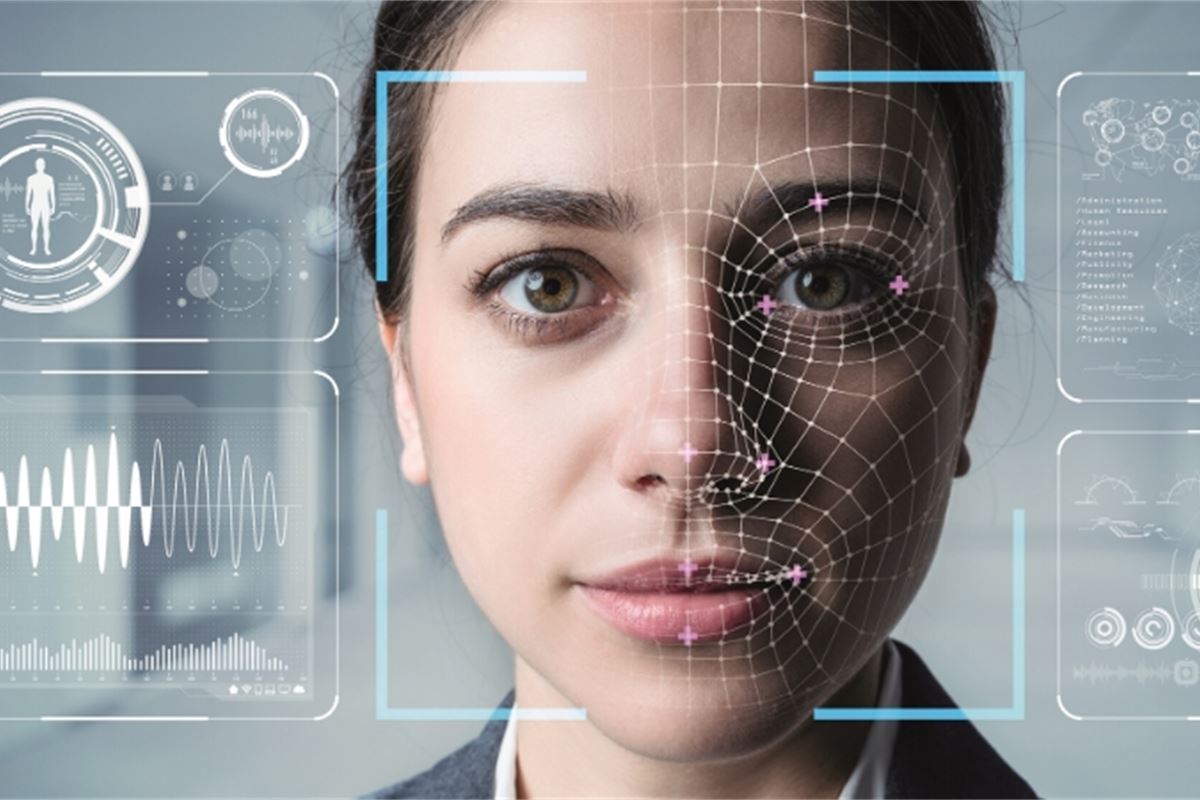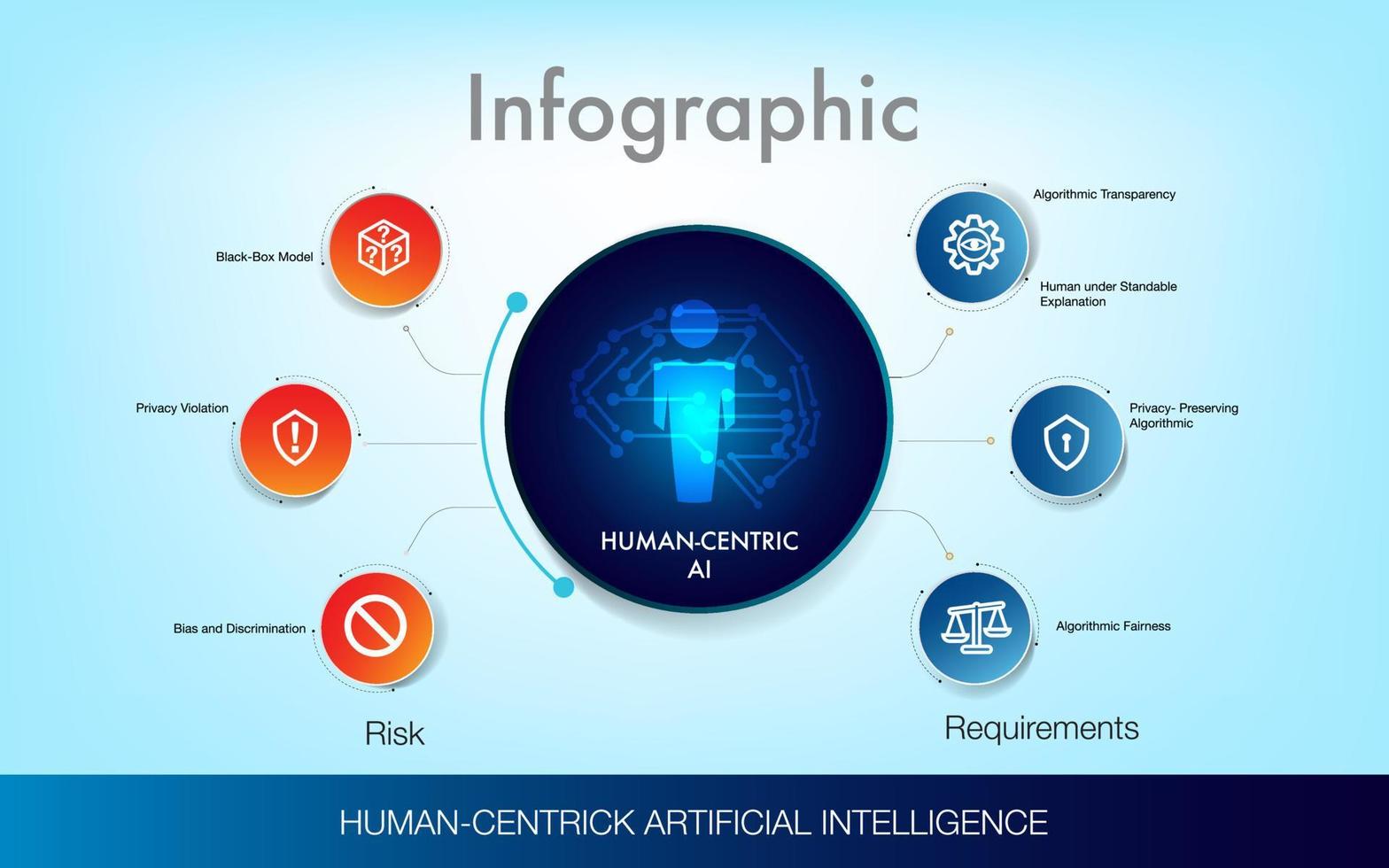Designing AI for Humankind: How Human Centric AI Is Forming the Future of Innovation
In the publication "Designing AI for Mankind: Just How Human Centric AI Is Shaping the Future of Technology," the authors dive right into the relevance of positioning human passions and well-being at the center of AI growth. This helpful and professional exploration digs right into the understanding of human-centric AI, ethical considerations in AI layout, the social impact of such systems, as well as the difficulties and advantages linked with executing them.
Recognizing Human-Centric AI
Understanding Human-Centric AI involves examining the ways in which man-made intelligence is made and created with a clear concentrate on placing human needs, worths, and moral factors to consider at the leading edge of its layout concepts. This method acknowledges that AI technology is not an end in itself, but instead a tool to enhance and enhance human capacities. By prioritizing human-centric style, AI systems are created to be transparent, reliable, and responsible.
Human-centric AI takes into account the diverse needs and point of views of people and neighborhoods. It aims to resolve issues such as discrimination, predisposition, and personal privacy problems that might arise from using AI. This requires a multidisciplinary strategy, involving professionals from different fields such as computer technology, psychology, sociology, and principles.
Designing AI with a human-centric focus also includes considering the impact of AI on human wellness and society. This suggests making certain that AI systems are created to boost human freedom, advertise justness and inclusivity, and maintain fundamental civils rights. It requires a cautious equilibrium in between honest factors to consider and technological improvements.
Moreover, human-centric AI recognizes the importance of collaboration between human beings and AI systems. Instead than changing human beings, AI is developed to work alongside them, enhancing their capabilities and supplying support in decision-making processes.
Moral Considerations in AI Style

One of the key honest considerations in AI layout is transparency. It is necessary to make certain that AI systems are clear and explainable, enabling users to recognize exactly how decisions are being made. This openness is crucial in developing trust fund between AI systems and customers, along with ensuring accountability and preventing prospective biases or discrimination.
One more moral consideration is fairness. AI systems should be developed to treat all individuals fairly and without discrimination. Concerns such as algorithmic predisposition, where AI systems might inadvertently prefer certain teams or people, should be attended to and mitigated to protect against unfair outcomes.
Personal privacy and information security are likewise important honest considerations in AI style. AI systems typically rely upon large amounts of information, and it is vital to manage this data properly, ensuring individuals' personal privacy legal rights are valued and secured.
Additionally, AI style must consider the prospective effect on tasks and employment. While AI can bring about substantial improvements, it might additionally lead to job variation and inequalities. Designing AI systems that enhance human capacities and develop brand-new chances can aid deal with these problems.
Social Impact of Human-Centric AI
As we look into the social influence of human-centric AI, it is important to consider how ethical factors to consider in AI layout form the interaction in between AI systems and culture. The adoption of AI innovations has the prospective to reinvent different elements of culture, including healthcare, communication, transportation, and education and learning. However, it is necessary to make certain that these advancements are developed with a human-centric method, taking into consideration the possible social ramifications.
Among the primary worries pertaining to AI's social effect is the potential variation of human workers. As AI systems end up being more advanced and qualified of executing intricate jobs, there is a worry that many jobs will certainly lapse. This can cause considerable socio-economic disruptions, such as unemployment and revenue inequality. It is necessary to take into consideration exactly how AI can be utilized to increase human abilities as opposed to changing them entirely, developing brand-new opportunities for employment and ability advancement.
Another social effect of human-centric AI is the capacity for prejudice and discrimination. AI systems find out from information, and if the information made use of to educate these systems is prejudiced, it can perpetuate and amplify existing societal biases. This can lead to unreasonable therapy and discrimination versus certain teams of individuals, worsening existing social address inequalities. It is vital for AI developers to be familiar with these biases and proactively work towards developing formulas that are unbiased and fair.
Additionally, the widespread fostering of AI modern technologies increases issues around privacy and data security. AI systems usually need access to vast amounts of personal information to function successfully. Ensuring that this information is firmly stored and used sensibly is important to secure individuals' personal privacy civil liberties. It is needed to develop durable laws and structures to control the moral use AI and guard people' personal information.
Advantages of Human-Centric AI Systems
Human-centric AI systems provide many benefits in various fields, consisting of enhanced efficiency, improved decision-making abilities, and individualized user experiences. These systems are designed to focus on the demands and choices of humans, making certain that modern technology serves as a device to increase human capacities rather than replace them.
One substantial advantage of human-centric AI systems is improved effectiveness - human centric ai. By automating recurring and mundane jobs, AI can maximize human sources to focus on even more complicated and innovative endeavors. This boosted efficiency causes greater performance and cost financial savings for organizations across sectors

Personalized user experiences are one more advantage of human-centric AI systems. By comprehending individual preferences and habits patterns, AI can tailor recommendations, material, and solutions to satisfy the special requirements of each customer. This level of personalization not only improves individual contentment however likewise drives customer commitment and involvement.
Obstacles in Executing Human-Centric AI
Executing human-centric AI systems offers a number of challenges that have to be addressed to guarantee their successful assimilation right into various sectors. One of the main obstacles is the honest factors to consider bordering AI innovation. As AI comes to be a lot more qualified and innovative of making decisions, it is vital to establish guidelines and laws to make certain that find out here AI systems are designed and utilized in an ethical way. This consists of addressing concerns such as fairness, transparency, and privacy.
An additional obstacle is the demand for robust and reputable data. AI systems rely greatly on data to make precise predictions and choices. Nonetheless, there can be predispositions and mistakes in the information, which can bring about biased or flawed outcomes. It is vital to have high-grade and diverse information sets to educate AI models properly and stay clear of reinforcing existing prejudices.
This lack of transparency can prevent trust and approval of AI modern technology. Scientists and developers need to work on developing explainable AI designs that can supply clear explanations for their choices.
Finally, there is a difficulty in ensuring human-AI partnership. Human-centric AI should aim to augment human capacities rather than replace them - human centric ai. It is critical to develop AI systems that function in harmony with human beings and allow efficient collaboration. This needs establishing user-friendly user interfaces and providing ideal training to users to recognize and work with AI systems successfully.
Final Thought
By prioritizing moral considerations and understanding the social influence of AI systems, we can develop AI that advantages mankind. It is important that we proceed to navigate these difficulties and strive in the direction of creating AI systems that really serve humanity's best passions.
In the publication "Designing AI for Humankind: Just How Human Centric AI Is Shaping the Future of Innovation," the authors dig into the relevance of placing human rate of interests and health at the forefront of AI advancement.As we dig into the social influence of human-centric AI, it is essential to think about exactly how moral considerations in AI style shape the communication between AI systems and society. As AI ends up being a lot more qualified and innovative of making choices, it is critical to establish policies and guidelines to make certain that AI systems are created and used in a moral way. It is vital to create AI systems that work in consistency with humans and enable effective cooperation. By focusing on moral considerations and understanding the social effect of AI systems, we can develop AI that benefits humankind.